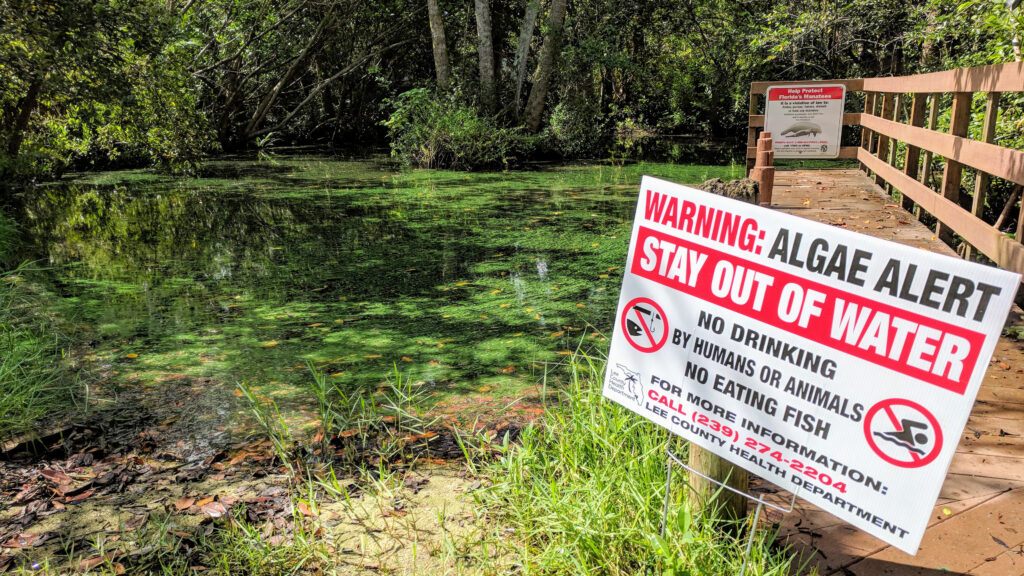By John Cassani, Calusa Waterkeeper emeritus
Another Florida legislative session has ended and, predictably, appropriations have been made to further study causes of water quality impairment.
One such example was for $25 million provided to Florida Gulf Coast University to “conduct a comprehensive water quality study to identify and analyze impaired rivers, including upstream sources, and determine the root cause of such impairments.”
Apparently, the root cause of water impairment is a mystery to the Legislature despite Florida’s long-standing history of water quality decline that parallels the state’s explosive growth. The documented casualties have been wetlands, wildlife habitat, public health and the economy.

The Legislature already spends millions annually going back decades to determine where, when and how water quality is declining. The annual Integrated Water Quality Assessment for Florida, the South Florida Environmental Report and the Caloosahatchee River and Lake Okeechobee Basin Management Action Plan reports all stem from state legislative appropriations.
These reports span decades and assess water quality at varied scales, summarize stakeholder performance toward reducing pollutants where required and suggest improvements to existing policy. As such, it is hard to understand why yet another study is needed on the root cause of water impairment.
The Florida Basin Management Action Plan process is meant to restore impaired waters consistent with rules and regulations having a basis in the federal Clean Water Act. Judicial challenges to the state’s water policies are well documented and advocates use these same information sources in court when attempting to improve protection of Florida’s rapidly declining waters.
A case in point of well-intended policy change that comes up short is exemplified by Gov. Ron DeSantis’ executive order in 2019 that resulted in Florida Senate Bill 712, called the Clean Waterways Act. The act emphasized immediate action in response to the increased rate of statewide water impairment. Three legislative sessions later, only about 12% of the act’s provisions were being implemented and the Legislature stubbornly refuses to codify the recommendations of the various appointed task force boards.
The recent federal court ruling restricting the state’s assumption of federal wetland permitting would seem to be another indicator that the state’s water policies are the root cause of widespread impairment that includes many of Florida’s most historic and valued waters.
Could it be that presumed compliance for polluters, resulting from unverified assumptions about regulatory requirements, is an important root cause of the problem? For example, the effectiveness of agricultural Best Management Practices (BMPs) has been repeatedly questioned. Yet BMPs represent over 50% of nitrogen load reduction credits from projects as part of the Caloosahatchee River Basin Management Action Plan. Rather than measure pollutants from farming operations, the BMP approach is a check-in-the-box type of regulation with too much latitude on compliance.
Pollutants from agriculture, the largest source of nutrient impairment for many rivers, should be leveling off after years of BMP requirements, but according to the 2022 Caloosahatchee River BMAP review, there is more than 1 million more pounds of nitrogen entering the river from the watershed annually compared to the starting load in 2012.

In urban watersheds, stormwater runoff is typically the largest source of water pollution but state rules regulating runoff from urban sources, including the latest version of the state’s stormwater rule, are also tied to presumed compliance with no requirement for post-construction verification or strict compliance with state water quality standards.
Additionally, the permit application process largely ignores cumulative impacts of development and a meaningful assessment of the permit public interest test that emphasizes the greater public interest.
Since most urban areas are clustered near Florida’s coasts, it should be no mystery as to why the state’s back bays fed by urban runoff and inland river systems have become impaired to such an extent.
At this point in time, the root cause of water quality impairment should not be a mystery to any Florida legislator as they need only look in the mirror and realize there is no amount of science that will suffice if there is no political will to implement it.
John Cassani is Calusa Waterkeeper emeritus.
If you are interested in submitting an opinion piece to The Invading Sea, email Editor Nathan Crabbe at nc*****@*au.edu. Sign up for The Invading Sea newsletter by visiting here.



